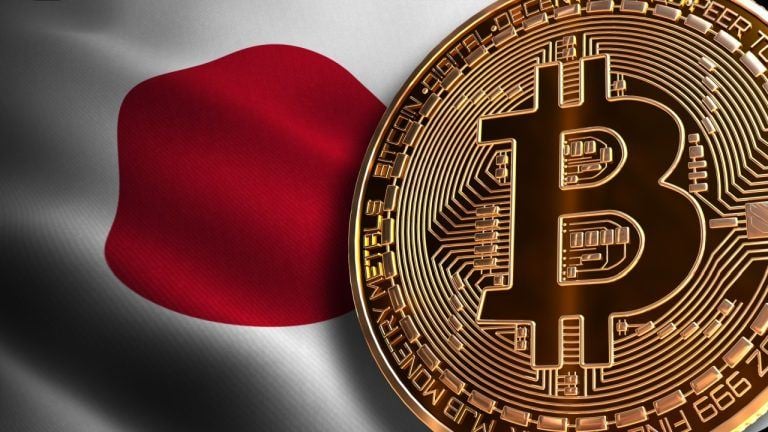
Web3 projects aim to create engagement between fans and sports leagues

Sports leagues are showing interest in DAOs, NFTs and the metaverse, but challenges may hamper adoption.
The multi-billion-dollar sports industry is undergoing a digital transformation and Web3 elements are likely to play a major role. This notion was highlighted in Deloitte’s “2022 Sports Industry Outlook” report, which predicts an acceleration in the blending of real and digital worlds, along with growing markets for nonfungible tokens (NFTs) and immersive technologies.
According to the report, such advances may lead to a significant increase in fan engagement. This is an important point to consider, given that fan engagement has long served as the backbone for ensuring sponsor revenue, ticket and merchandise sales, along with the overall popularity of a sports league.
Yet as technology advances, sports fans have expressed interest in forming deeper relationships with sports leagues. For instance, the “Stats Perform 2021 Fan Engagement” report notes that sports fans are not only focused on watching sports now but that they also aim to “live” experiences through technological advancements.
Direct relationships with sports leagues
Eyal Donath Zafir, investor and crypto lead at Liberty Global Ventures, told Cointelegraph that Web3 will likely be a game changer when it comes to creating better fan engagement for sports leagues:
“Web3 is the internet with true ownership, as it provides a built-in layer that makes it easy to hold and transfer value. For sports leagues and their fans, Web3 can be a game changer in building direct relationships, aligning incentives and enabling true ownership and influence.”
Zafir added that Web3 projects utilizing decentralized autonomous organization (DAO) models, NFTs and cryptocurrency can demonstrate how owners of a sports property can use technology to perform revenue shares, open intellectual property licensing or take fan votes into consideration.
Although these concepts are still nascent, a handful of sports leagues have started exploring such models. For example, Karate Combat — a full-contact martial arts sports league — recently announced that it will form a DAO to transition its governance to its fans and athletes.
Rob Bryan, founder of Karate Combat, told Cointelegraph that during the summer of 2022, the entire league — including fighter contracts, copyrights, content, intellectual property and more — was sold to a foundation that serves as a legal wrapper for a DAO.
In turn, Bryan explained that there are no longer equity holders of Karate Combat but that the martial arts sports league will be governed and controlled by fans that hold the league’s token.
Recent: Users need to go under the engine in Web3 — HashEx CEO
“Token holders will have the most control over the direction of the league from here,” he said. Bryan elaborated that a DAO infrastructure will ultimately allow tokenholders to do things like vote on DAO suppliers that operate league functions, set token incentives and decide — within constraints set by the Fight Operations DAO supplier — who should fight against whom.

Adam Kovacs, league president of Karate Combat, further told Cointelegraph that such a model goes beyond popular Web3 elements like NFTs for sporting leagues. He said:
“Web3 needs to meet fans where they are and only then utilize incentivization. We don’t think fans want to pick out jersey colors. They want to support their favorite athletes, make predictions on who is going to win, set matchups and perhaps land a job with their favorite sports league.”
Echoing Kovacs, “Commodore,” the pseudonymous co-founder at Krause House — a global community of basketball fans want to operate the National Basketball Association (NBA) as a DAO — believes that sports fans need to be able to vote on certain things to feel involved with a sports league.
As of today, Commodore explained that NBA fans are not engaged on the levels that they should be. “One interesting thing to think about is that each NBA team really lacks a direct relationship with their fan base by doing things such as barring season ticket holders on an email list. Twitter, YouTube, TikTok, Instagram, Bleacher Report, ESPN and more all sit directly in between the fan and the team,” he pointed out.
In order to change this, Commodore said that Krause House is offering an NFT-based membership model, which essentially serves as a ticket into its community. Community members are then able to use a governance token that has no financial value to make decisions regarding their organization’s events and strategy.
According to Commodore, this process is internal, yet he noted that Krause House aims to bring this model to the NBA. “We are in conversations with NBA teams from an ownership perspective. This means that we are trying to buy into a team and then a team can partner with us on fan engagement.”
Flex Chapman, co-founder at Krause House, added that for a long time, fans have served as the underlying unit of sports leagues. Yet he believes that Web3 elements will eventually let fans have more say and access. “This model enables low-risk decisions to fans so that they can feel more connected to NBA teams while having a bigger impact. This is an avenue to create new fan experiences in ways we haven’t seen before,” he remarked.
While DAO models are starting to pique the interest of certain sports leagues, gamified experiences in Metaverse environments are also gaining traction. Dirk Lueth, co-founder and co-chief executive officer of Upland — a metaverse mapped to the real world — told Cointelegraph that the sports industry is looking for ways to better engage with their younger audience and international fan base. Therefore he believes that experimenting with Web3 projects to gamify traditional fan experiences is the first step sports teams and leagues are taking:
“As more and more of our identity is represented virtually, so is our fandom. If much of the way we express ourselves is on online platforms and virtual worlds, it’s natural for our sports teams to meet us there.”
Most recently, Upland partnered with FIFA — the international governing body of association football — to allow fans to participate in gamified experiences in the Metaverse. Although such a model doesn’t allow fans to vote on certain decisions, Lueth explained that a Metaverse approach enables sports fans to enhance ownership of assets within a realistic visual environment.
“Digitizing and gamifying a similar concept is enhancing this experience. Similarly, just as fans wear their team colors proudly, in Web3 platforms like Upland, they can ‘wear’ their fandom as a block explorer (game avatar) or decorate and customize their metaverse homes,” he said.

Indeed, such a concept may be key for sports leagues moving forward. Based on the success of Upland’s partnership with FIFA, Lueth said that Upland has partnered with the Argentine Football Association to create fan engagement within its metaverse platform.
“Many clubs and leagues have reached out to us after the successful FIFA World Cup Qatar 2022 collaboration. There are many questions about how to experiment with these models since it’s all innovative. What easily resonates are not trying to replace experiences, but finding the ones you can enhance with true ownership of assets and a visual layer such as the metaverse,” he said.
Will sports leagues be quick to adopt Web3 models?
Although a handful of sports leagues have started experimenting with Web3 models, a number of challenges may hamper adoption. For instance, creating an easy-to-use platform for the mainstream is critical in order for these concepts to catch on.
According to Zafir, mainstream adoption will only take off with real-world utility, along with crypto complexities abstracted away from the end users. “I believe that two things need to happen for adoption. First, Web3 needs to be really easy to use. Secondly, we need to create great use cases.” Zafir added that Web3 currently has a limited number of users leveraging things like crypto wallets. Given this, a DAO model may be complex for Web2 users, especially those who are unfamiliar with concepts such as storing tokens within digital wallets.
To put this in perspective, Bryan explained that Karate Combat fans will eventually be airdropped tokens that can be held in third-party wallets or the Karate Combat wallet built inside the league’s mobile app. “Fans should be able to cast votes there. The user experience will be very simple within the app,” he said. Bryan further noted that the tokens will presumably be listed on crypto exchanges.
Such a model could also create additional risks beyond accessibility. Margaret Rosenfeld, chief executive officer of Zukunft — an advisory firm for Web3 technology business models — told Cointelegraph that before sports leagues decide to use any blockchain tokens as part of a new fan engagement model, they should do a thorough analysis of the securities, gaming, commodities and payments laws in the different jurisdictions in which it operates.
“Any type of token that is ‘earned’ or used as a ‘reward’ can easily cross the line and gain regulator scrutiny if not properly structured,” she said.
Recent: The ‘godfather of crypto’ wants to create a privacy-focused CBDC: Here’s how
Regarding a DAO model, Rosenfeld said that a governance token allowing fans to vote should also be carefully considered. She noted that the Ooki DAO lawsuit brought by the Commodities Future Trading Commission (CFTC) should serve as an example for future DAOs.
“The CFTC argues that the Ooki DAO is an unincorporated association and anyone who voted as part of the governance model should be held individually liable for alleged illegal activities of the DAO.” Given this, Rosenfeld believes that traditional industries such as sports may want to move away from DAOs in their Web3 engagement models if the CFTC prevails in its argument against Ooki.
Go to Source
Author: Rachel Wolfson








